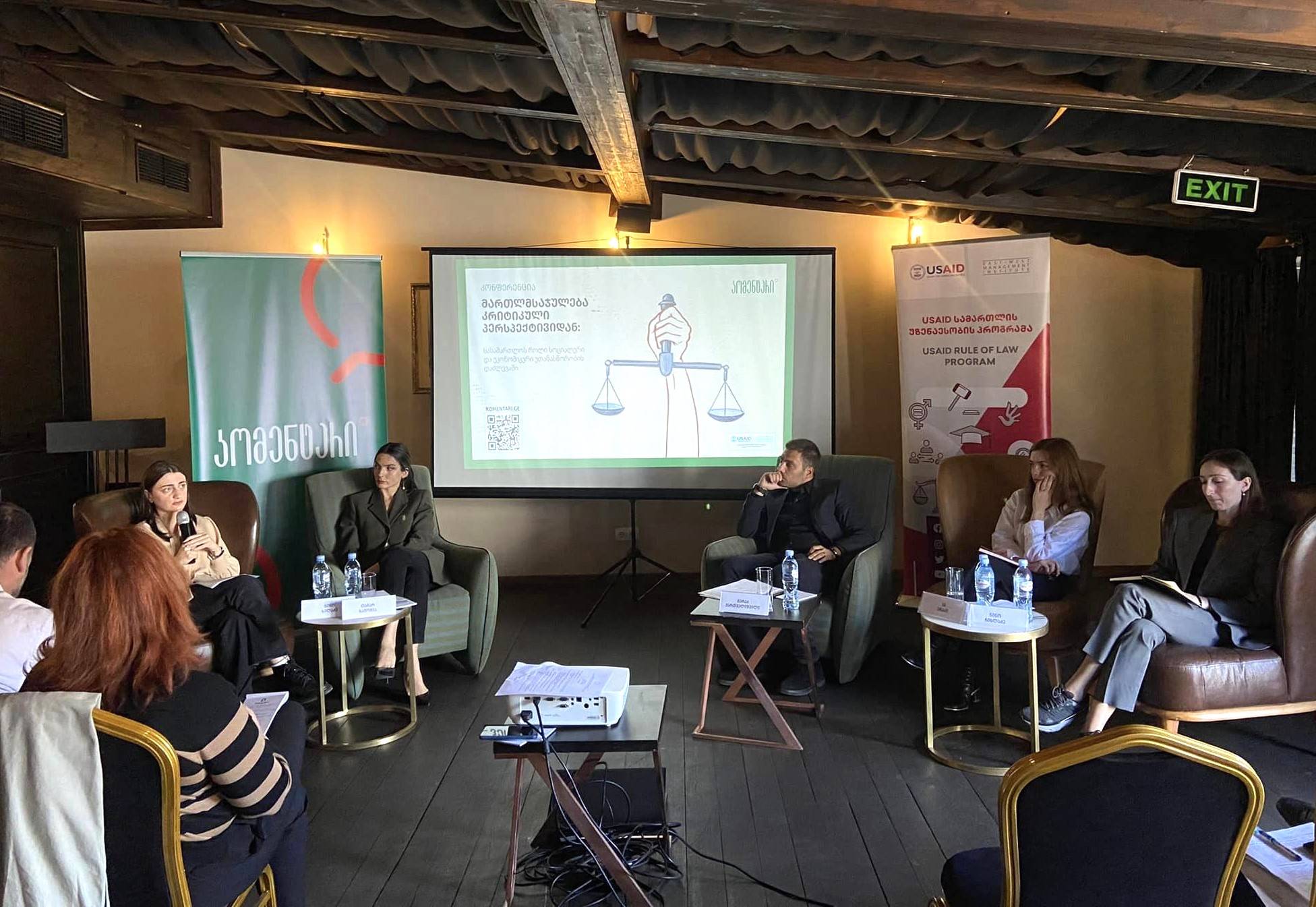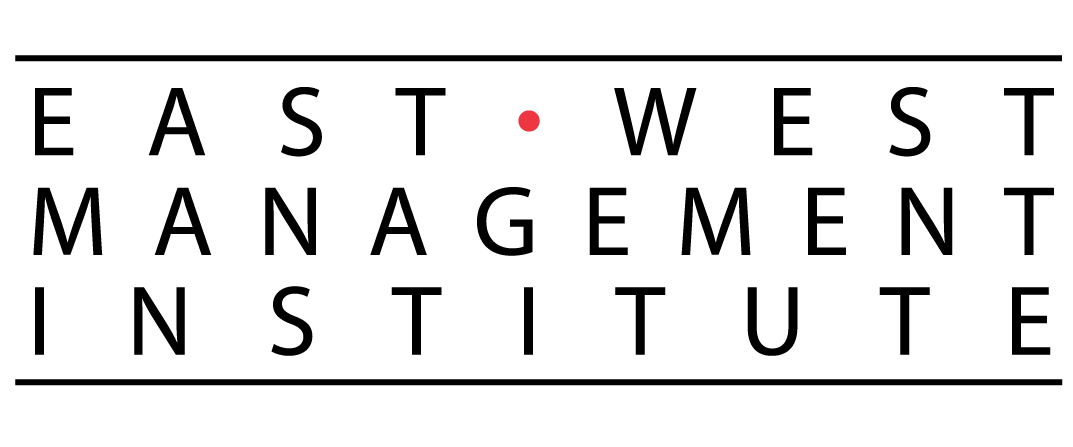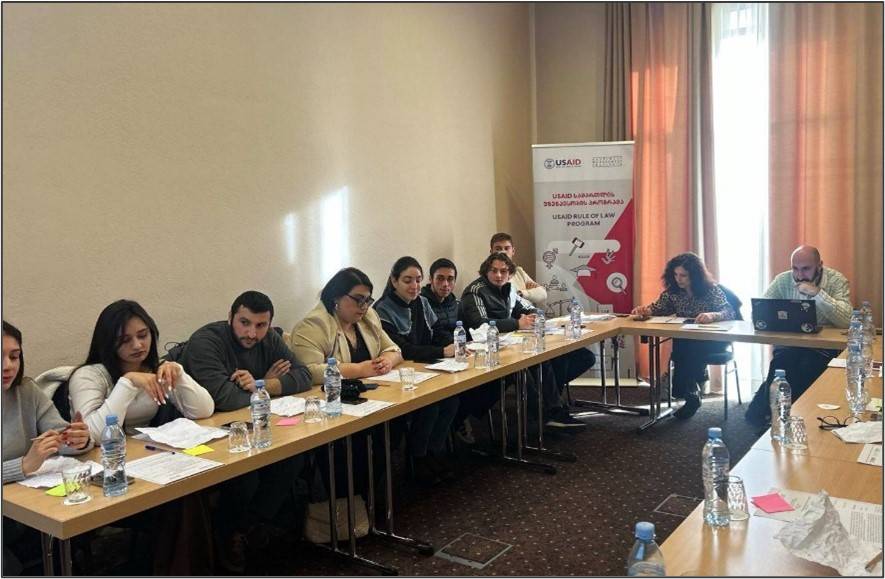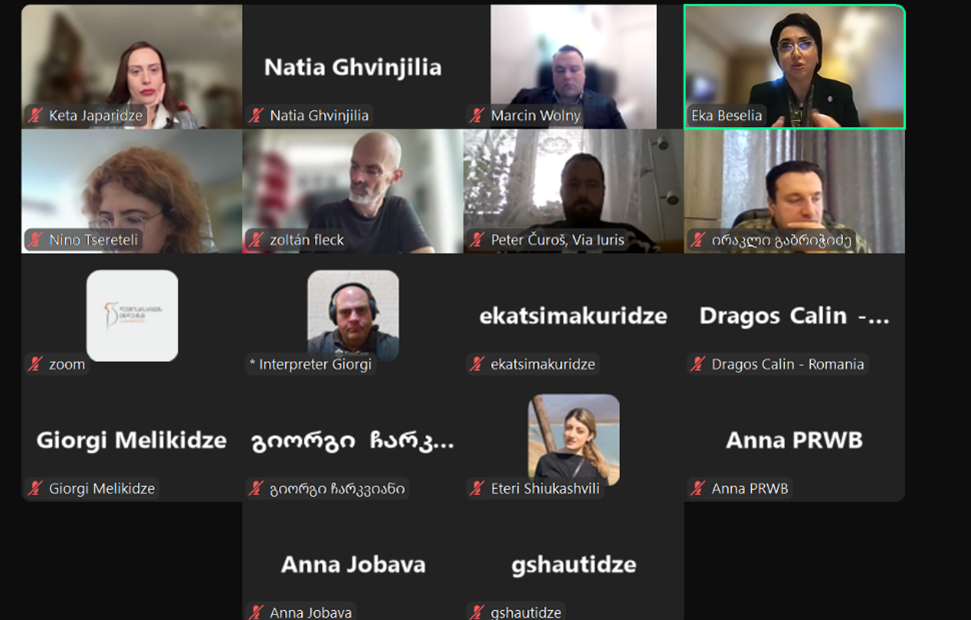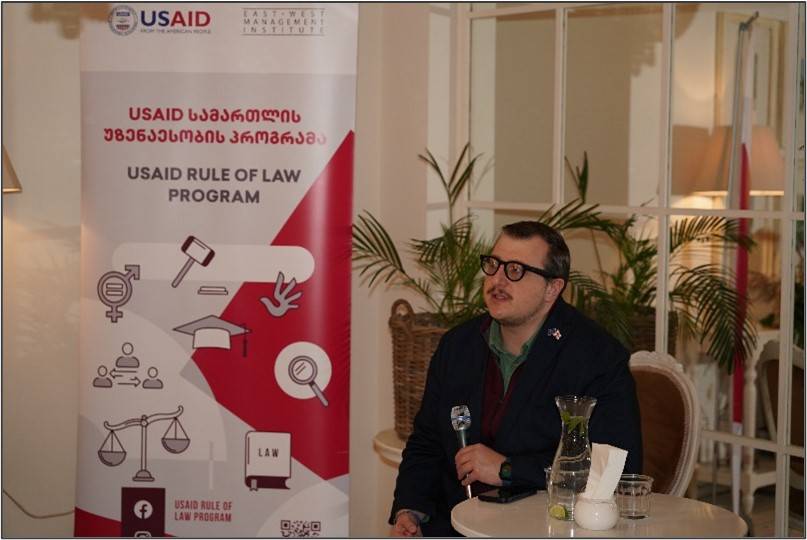Conference on the Role of the Court in Overcoming Social and Economic Inequality
The USAID Rule of Law Program promotes public awareness-raising activities focusing on the impact of justice institutions’ work on citizens’ lives.
On September 13, 2023 Democratic Institutions Research Center (DIRC), with the Program's support, organized a conference to analyze the role of the judiciary in finding solutions to citizens’ social-economic challenges. The event provided a space for an exchange of experiences between legal professionals interested in social justice issues.
In the opening, DIRC representative, Sopho Verdzeuli invited speakers and participants to reflect on the intersection of justice and social welfare and discuss the courts’ role in addressing the problems of social and economic inequality.
Neil Weinstein, the USAID Rule of Law Program's Deputy Chief of Party noted that the work carried out by the DIRC team fits the Program's cross-cutting concept of people-centered justice. He brought up several examples of how the Program applies this concept by focusing on the needs of court users.
Gathering over 30 representatives of CSOs, field experts, and judges, the discussion focused on the relationship between the welfare state and the justice system, the role of the judiciary in disputes involving loans and evictions the interaction between the social assistance system and court practice.
The first panel was dedicated to the discussion of how the welfare state is reflected in the Constitution of Georgia. The second panel touched on challenges related to the accumulation of excessive debt in the country. It was pointed out that the most serious negative effects of upaid debts are evictions from home. The European Union and other international actors have issued multiple recommendations to avoid evictions, for example, by reaching settlements among the parties, restructuring of loans, etc. The speakers emphasized that the courts too should pay closer attention to the individual needs of borrowers and the effects of the courts’ decisions on them.
The issues of social assistance and court practice were also discussed during the event. The speakers presented statistics relating to socially vulnerable persons in Georgia and the challenges they faced. According to the statistics, one third of the population is listed in the registry of socially vulnerable persons, and some regions are in a particularly difficult position. The methodologies for calculating the social vulnerability rating scores are also problematic.
Tbilisi City Court Judge Tamar Khazhomia broadly spoke about her experiences in cases involving loans. Tbilisi City Court judge, Davit Tsereteli said that “The methodology for rating a person's socio-economic status is not clear to judges. This methodology needs to be revised and should be transparent to everyone.”
The conference was the closing event of the project implemented by the DIRC with the Program’s support. It raised public awareness about the work of the judiciary by developing easily accessible content about the key challenges and potential improvements to the justice sector, Georgia’s international commitments concerning justice sector reforms, and contemporary discussions regarding similar reforms taking place globally.
